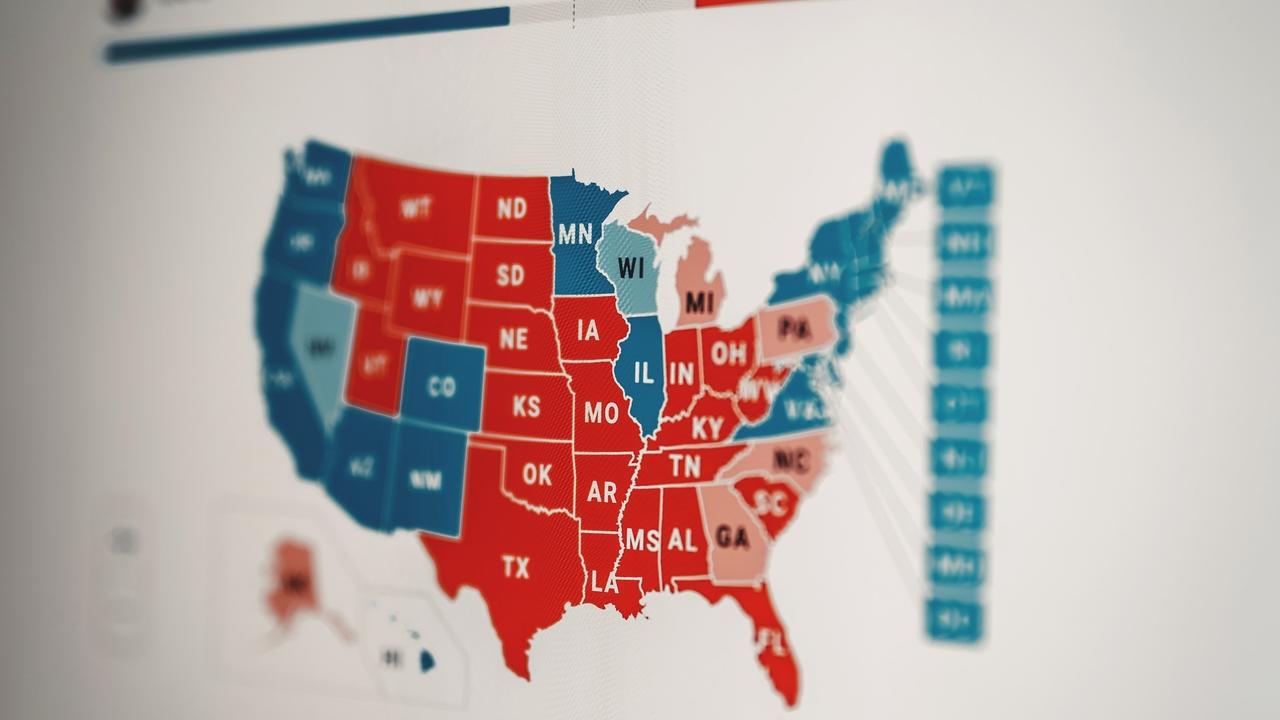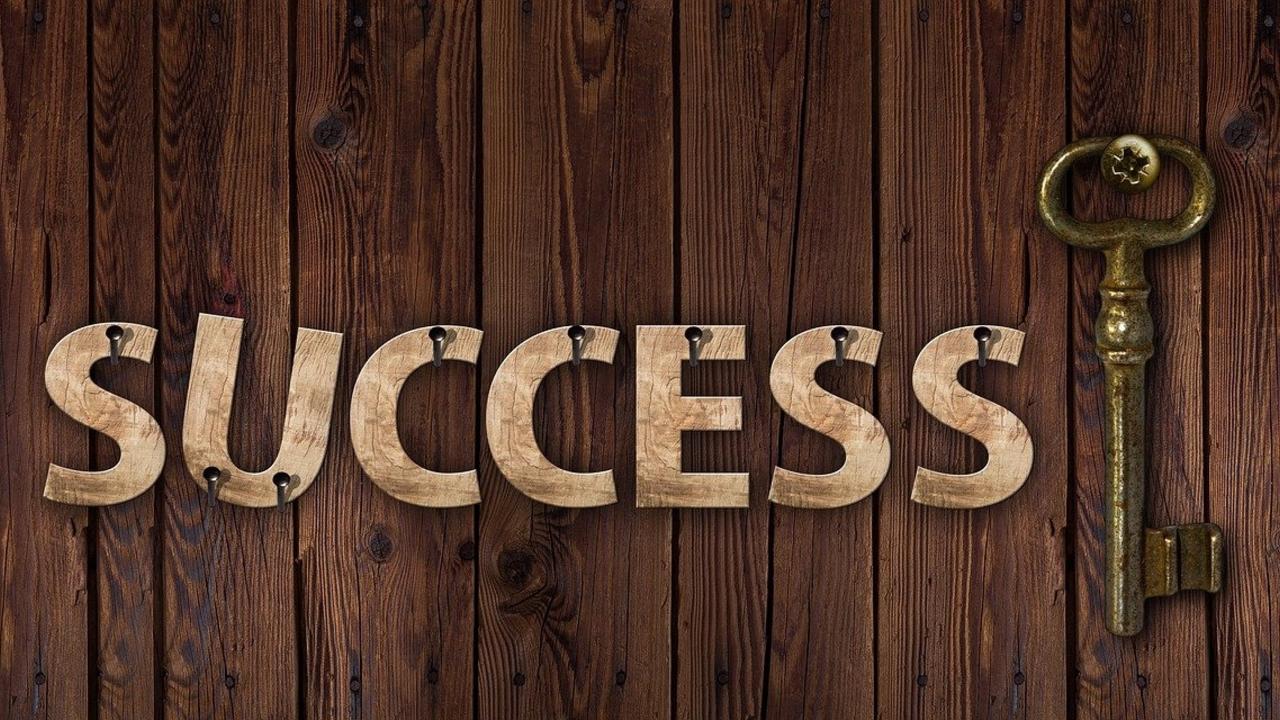What you can learn from the US election

Now that the reality show from the USA has come to a temporary end (with a satisfactory outcome in my view), it is interesting to see what we can learn from it for our leadership.
And by that I don't mean the actual content of the discussion (which had been pushed into the background anyway), but the circumstances that made the course of events so exciting for many. After all, we can all learn a lot from this for our communication, especially as leaders.
Because no matter whether you found the whole theater necessary or annoying, there is hardly anyone who didn't care. And therefore, the question ‘what is so fascinating about it?’ arises.
Here comes the point: To achieve any changes in your company or team, you depend on the commitment of your people.
So, what can we learn from the American election campaign?
- Clarity of purpose. In the American presidential campaign, the goal is very clear: to get the majority of the electorate as the sum of the individual states. It is...
The essence of all business success

If you have been following my work for a while, you’ll know how much I like to break down complicated concepts into simple truths. One of these is what I’ll share today.
The question is this: what do you need to focus on the most to be successful in any business (and even in life)?
Think about it for a moment. I’m sure you’ll come up with things like customer focus, a powerful vision, motivated employees, a good strategy, and so on. And all these answers are correct. This is why I work on them with my clients in my programs.
However, the most essential business functions are just two. If you get these two things right, your business will have a hard time failing (even if this is not impossible). If you get them wrong (which most businesses struggling do), you are definitely in trouble.
Want to know what these two functions are? Here we go:
- The creation of products and services that people (and businesses) want to buy
- Marketing and sales to tell these people...
Why people love Donald Trump

Here is the secret why so many people (at least in America) love Donald Trump - and it's not because of his politics.
Instead, it has to do with how we feel better when someone with authority gives us permission to behave in a way that we know is wrong.
It's like science telling us that fatty food and lots of red meat are healthy; finally, with a good feeling, we can feast properly again.
That's exactly what Donald Trump does: he exemplifies behavior that most people cannot allow in their daily lives if they want to keep their family or their jobs.
It's the same as with action heroes - they are allowed to wreck whole streets and take others out if they get in the way. "Oh, if only I could do that, too," many viewers think unconsciously (and of course wouldn't admit).
To finally live a more carefree life with fewer constraints, people who are constantly wrangling with their "misbehaviours" (actually I want to, but I'm not allowed to) can buy themselves a mental free ticket by voting...
Which fields do you occupy?

There is one person who is in the driving seat for public perception and thus an entire industry: Elon Musk. His latest announcement is about revolutionizing the entire automotive production process by making the body only consist of four parts instead of 80. This will massively reduce costs.
Well, with Musk's announcements, the question is always which of these will be implemented at all and by when. But that's not what it's all about.
People like Elon Musk do not usually make concrete promises with their statements, but rather create and occupy domains of opinion in public perception - and the opinion of experts.
As a result, as soon as such ideas become reality, they are directly linked to the person who occupied the area. This usually results in a dramatic increase in reputation - with direct consequences for market leadership.
Another expert in this field was Steve Jobs: Whom do you associate with pioneering smartphones, mobile music enjoyment, emotionally loaded computers and...
Report from the customer frontlines

Here are some thoughts that can help you improve your customer service - for internal and external customers.
In the morning, from time to time, I go to a café to work. I love to have a little life around me when I want to concentrate on my tasks. And something always happens there that inspires me, like this one:
I’m at a hotel with a small terrace in front of it. Since it is already warm in the morning, I take a seat at one of the tables and order a coffee with croissant (the usual "breakfast" in French-speaking Switzerland). So far so good.
What I notice: The hotel guests are obviously all sitting in the dark interior to have their breakfast. When one of the hotel guests takes a seat on the terrace, he is clearly instructed by the waitress that hotel guests must sit inside. The guest is visibly "not amused," but, in the end, he complies (after all, we are in Switzerland). I doubt whether he will stay again in this hotel.
What happened here will most likely happen to...
What's at the front of the buffet?

The other day, I read about an exciting study that shows that 75% of the people at a breakfast buffet take the first item, regardless of what is there. Two thirds of all items chosen come from the first three items on the buffet, no matter how long the buffet is.
This confirms an old wisdom from sales: people often just buy what is in front of them.
That's why good marketers put in first place the products you want to sell the most (which is why it is still a mystery to me that in restaurants on wine lists the expensive wines almost always come at the end).
Of course, this correlation applies not only to sales but also to any kind of influence, so it is essential for successful leadership.
Here are three specific applications - outside of sales - where you should reverse the order if you want to achieve more with others:
- Presentations. Most of the presentations I see in leadership are more like a sequence of facts. My recommendation: turn that around! Start with...
How to double your sales

One of the business areas in which I never lacked a flood of good and bad examples is marketing and sales. I find it continuously remarkable how many opportunities for revenue and profit are missed out, ignored and sometimes even actively turned down.
Let’s get directly to the point. Here are three practices for growing your revenue and profit instantly.
The key: They are not extremely difficult to understand and implement. Most leaders nod their head when I present them at my workshops.
However, as the saying goes, what is easy to do is also easy not to do. And this is what I see in most businesses: a gap between understanding and implementing. OK, here are my tips, ready to be implemented:
- Follow up. I am constantly stunned about the lack of follow-up at most businesses. I don’t even need to cite the well-known examples at restaurants and hotels where I never ever get any personal and creative offers and invitations after staying with them. No, all...
The secret to boost sales!

Today, I have a secret recipe to help you sell more, even if you have nothing to do with sales.
If you have followed me for a while, you know sales activities are not limited to conversations with potential customers, but a reality of our daily life, be it professional or private; whenever you want to convince someone of something, you “sell.”
So, what is the “secret recipe” to become more persuasive, to “sell” more?
There are three easy steps you probably know, but probably do not apply daily. Here is your “reminder”:
- Reason. Why should the other be persuaded? What’s his or her advantage for being persuaded? Most of us (yes, even senior sales people) often forget this important first step. There is no persuasion without a clear reason.
- Reality. What is the other person already convinced of? Behind this question is the fact that it is much easier to convince people of a “complement” of their beliefs...
Emotion Eats Logic for Breakfast
In my workshops, I am always confronted with opposition and astonishment when I make it clear that we make all decisions one hundred percent emotionally (and then justify them rationally). Furthermore, the strongest motivation for decisions is the avoidance or reduction of “pain,” especially anticipated pain.
Ambition and pleasure always come second when making decisions. So does logic. Salespeople need to know this.
These facts, proven by countless studies, are currently receiving blatant and tragic confirmation from the novel coronavirus and the decisions associated with it. Even in Switzerland, shelves of pasta and rice are being bought up out of fear. Unbelievable!
You can use the mechanisms that become visible in this process in a positive way for your business and leadership at any time if you want to get people to act:
- Proximity. The more immediate the perceived threat, the stronger the emotional reaction. This also applies to positive incentives. If they are...
Is the Coronavirus Making Us Sick?
Here’s a very current topic and what it teaches us for our success: the coronavirus. It is the all-dominant media topic these days.
I don’t want to trivialize a single death due to the virus—even one was one too many. But some mechanisms make the virus a “media hit,” and these mechanisms are not caused by the real danger. Otherwise, the media would be full of reports every day of the year about deaths from the common flu (of which there are thousands to tens of thousands every year in Europe alone) or road deaths or hospital infections.
The mechanisms that make the coronavirus so prominent in the media are different from the facts (and we can all learn from this situation if we want to spread news quickly):
- Newness. The virus is new, and for this reason alone, it is exciting.
- Mysticism. The implications are not yet fully understood, which makes the idea of the virus a breeding ground for all kinds of conspiracy theories. Fascinating!
- Threat....
